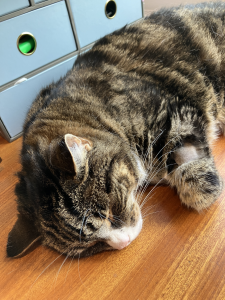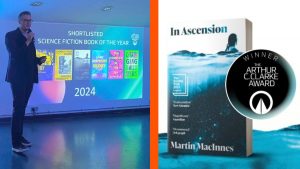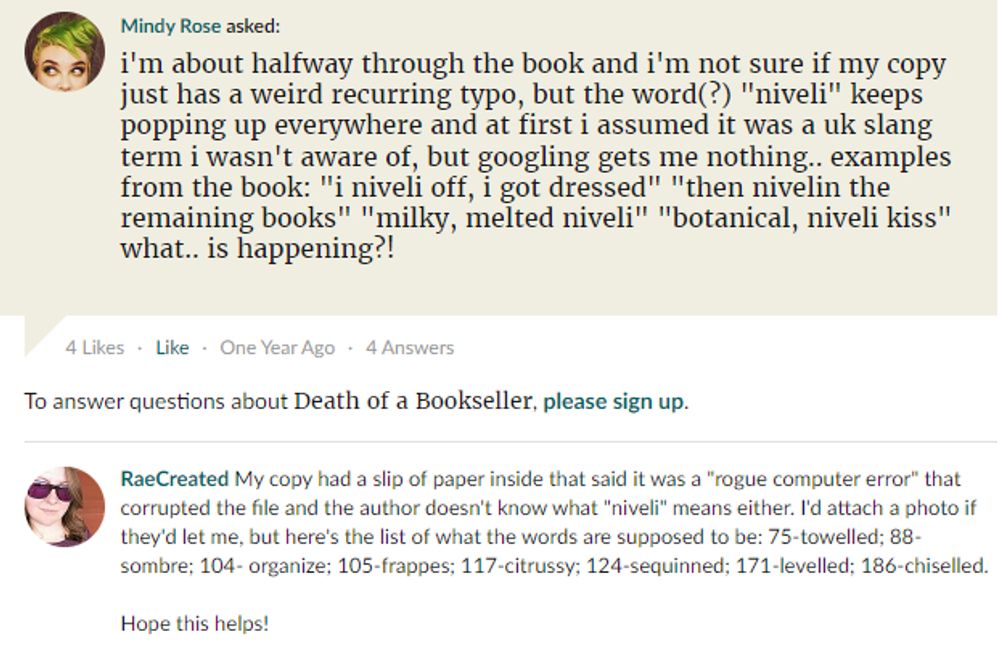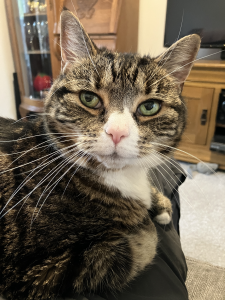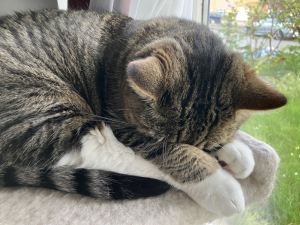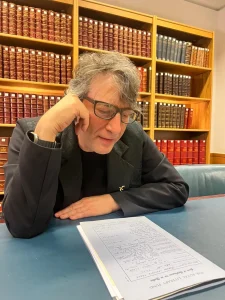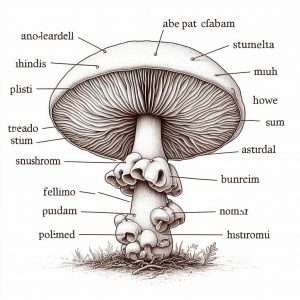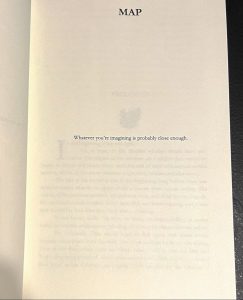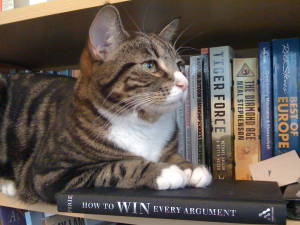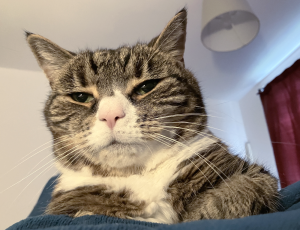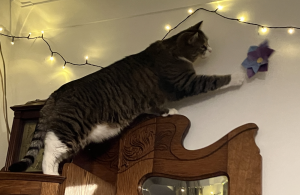Plus, what Labour can learn from South Korea, Richard Osman and Marina Hyde on the Edinburgh Fringe, and an update on Grabbity’s health.
Hi there,
We’re having another one of those melty days as I write this, so I’ve moved down to the lounge where it is cooler and am now surrounded by cats who think that they ought to be snuggling me. Much as I would love to have a cuddle, it’s 27c down here (I hate to think how hot it is up in my office), I have a wet tea towel cooling my feet, and the the last thing I need are two purring hot water bottles on my lap.
I’m heading into Ada Lovelace Day season and things are getting busy, so I’m going to either shorten the newsletters if I can (this one was supposed to be short, but it’s still clocked in a thousand words or so!), or possibly take some time off, or I’ll perhaps just make the schedule a bit more ad hoc. We’ll see how it goes!
Stop, look, listen: Temporal
 Julian Simpson’s latest audio drama, Temporal, has just been release and is available now on Audible.
Julian Simpson’s latest audio drama, Temporal, has just been release and is available now on Audible.In the not-too-distant future, a 21-member crew launches from Earth. Their mission: to establish a temporary colony on Mars. Little do they know that colony will become permanent–and the last stand of the human race. Because, without warning, every single person left on Earth simply…vanishes.
Now, a thousand years later, the resources needed to sustain life are running out, and the very existence of the Mars colony is threatened. Humankind has only one option–to return to its home planet.
But is Earth safe? Could the Vanishing happen again?
You might remember, back in Issue 61, that I waxed lyrical about Julian’s Lovecraft Investigations, an HP Lovecraft-inspired audio drama done in the style of a true crime podcast. It’s genuinely one of the best written, acted and produced audio dramas I’ve ever listened to. I am sure that Temporal will be just as good, not least because Julian has once again worked with sound designer David Thomas, and I can’t wait to listen.
And, as a bonus, if you want a peek behind the scenes, Julian has written about the background to the project and how it call came together.
Opportunity: Joel Morris launches comedy course
Comedy writer and dissector of the comedy frog, Joel Morris, is launching a new online course for writers, The Writer’s Room. Joel, who wrote the fantastic Be Funny Or Die and has such a storied career in comedy writing that I can’t even sum it up.
Starting in September and running over 5 weeks every Sunday via Zoom, the course will feature a 45 minute talk from Joel followed by a discussion. You can find more info on his website, where you can also sign up to get the dates and times when those are finalised. The cost will be £350 + VAT.
If you want to be a comedy writer, this really is a must-do course.
Read this: Dave Cohen on the BBC and South Korea
The BBC has been underfunded for years, and as I’ve said before, comedy has been one of the key victims with fewer and fewer comedies being commissioned.
So it’s great to hear that comedy writer Dave Cohen met with policy wonks just after Sir Keir Starmer was elected leader of the opposition to discuss how Labour could “work constructively with the BBC”. Dave has now taken a quick look at what the Labour manifesto has to say about the BBC, and how they could take a leaf out of South Korea’s book to improve both the economy and the arts in the UK:
The reason I’ve become obsessed with South Korea is because a few years ago their government worked out what we Brits had known and successfully followed for decades: a small amount of government funding for the arts brings a massively disproportionate success to the country.
It would be great to see Labour understand that investment in the arts isn’t a ‘nice to have’, it’s essential to their project of national renewal.
Stop, look, listen: The Rest Is Entertainment — Robert Downey Jr & the Death of TV Comedy
About halfway through this episode, Richard Osman and Marina Hyde discuss how the Edinburgh Fringe has lost its role as the best place for comedians to get themselves discovered. Not only putting on a show at the Fringe a horrendously expensive endeavour these days, the loss of TV comedy shows means that there’s no one really looking for new talent.
So what are comedians doing instead? Listen to find out!
Obligatory cat picture
You might remember that last time I emailed, Grabbity was due for an X-ray to see what was going on with her teeth. Well, she ended up having two of her lower incisors out — those are the tiny little teeth at the front, in between the fangs.
Unfortunately, the pre-anaesthetic blood tests showed that she has early stage kidney disease, so the poor girl had to stay at the vets overnight whilst they gave her additional fluids. Then she had to have more anaesthetic than usual, so was quite drunk when we got her home. And it was a very, very hot day, so she was panting and generally very put out.
We’re moving her on to a renal diet at the moment, which she is very unhappy about. I have two types of renal kibble, and will be buying a tester pack of renal soft food as well, to see if we can find one she’ll voluntarily eat. Meanwhile, I have a kilo of food she’s rejected.
Dental work isn’t covered by pet insurance, so it’s been an expensive couple of weeks. But it’s worth it for the fact that it uncovered the kidney disease at an early stage when it’s still manageable, and also highlighted that she has arthritis. We can now look after her much more effectively and make sure that she has the treatments she needs to live happily and comfortably.
Right, that’s it for this time round!
All the best,
Suw
{ Comments on this entry are closed }
